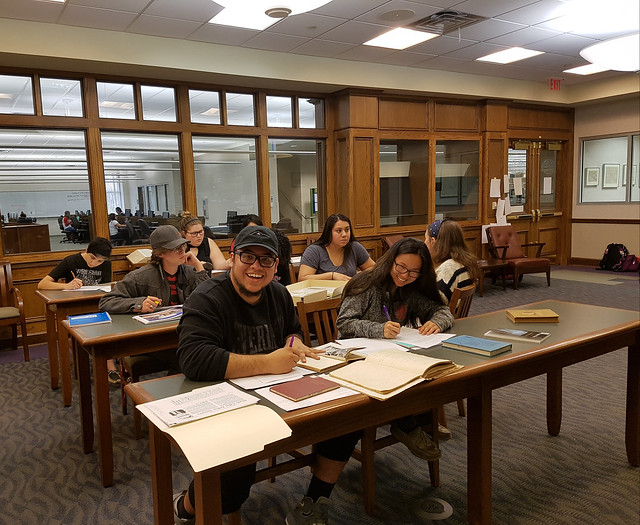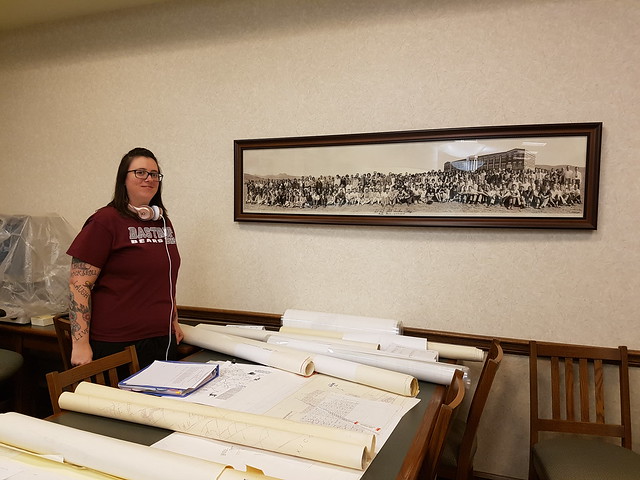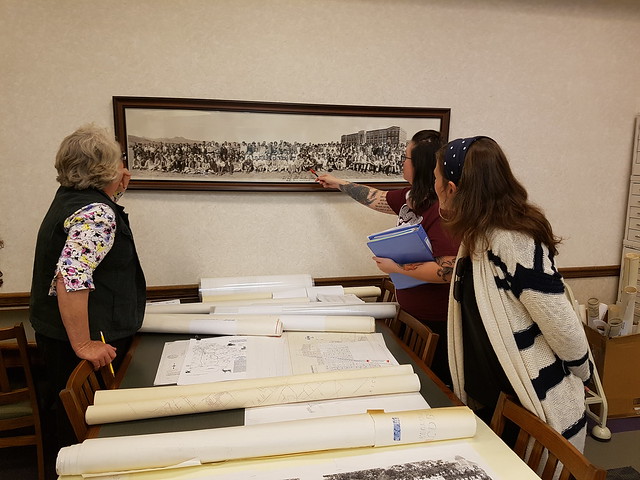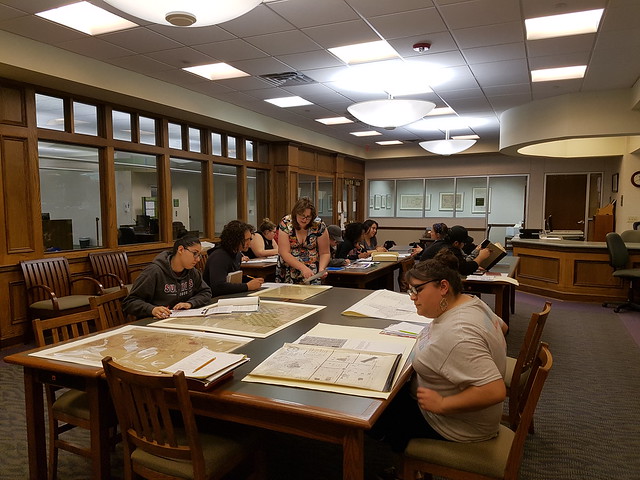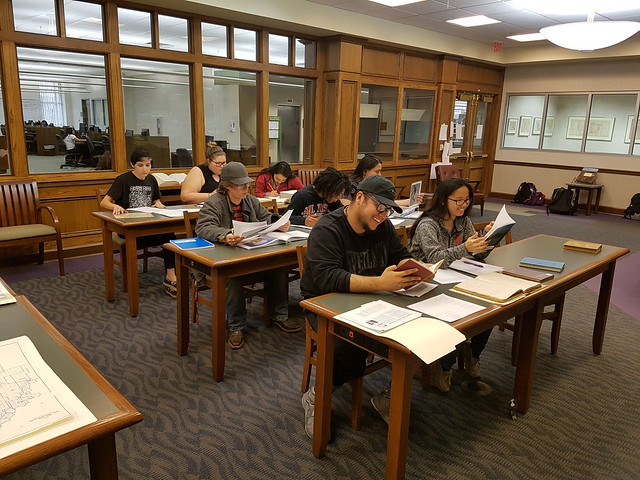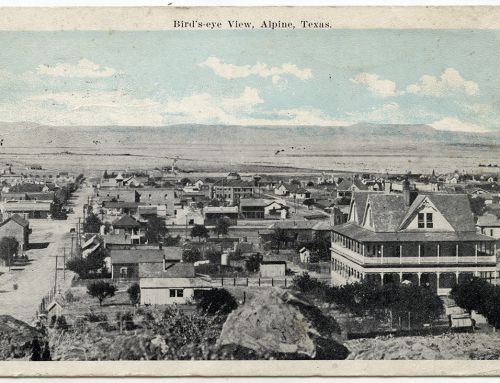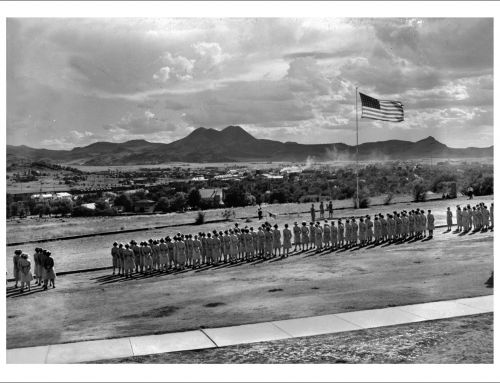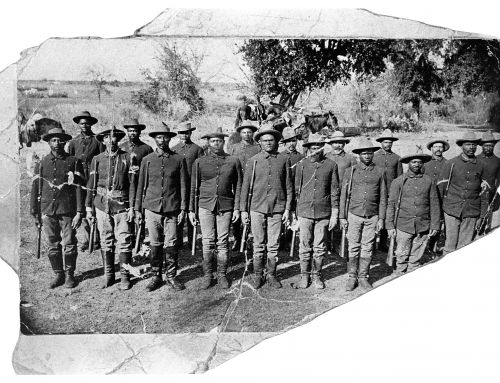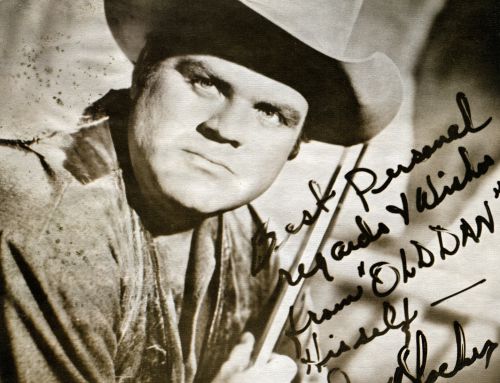On Feb. 6, 2018, the Archives of the Big Bend hosted Dr. Jenn McCormack’s Geography of Texas class. The Archives was chosen as one of the six locations students will visit for their Field Site Analysis assignments. 13 students in the class were able to learn about the holdings of the Archives, the types of resources, and how many of our materials relate to Texas geography.The students learned what a primary source was and were encouraged to think about which of our resources they handled were primary sources.
Primary & Secondary Sources
Primary sources are the raw materials of history — original documents and objects which were created at the time under study. They are different from secondary sources, accounts or interpretations of events created by someone without firsthand experience.
A secondary source is one that gives information about a primary source. These sources contain second hand information that has already appeared in primary documents. In this source, the original information is selected, modified and arranged in a suitable format for the purpose of easy location by the users.
Students in Dr. McCormack’s class were able to have a hands-on learning experience with a variety of our collections as active researchers. They were eager to ask questions and learn about the materials presented.
Examples of collections they researched include the following:
- Maps
-Maps from the Crosson Ranch Collection and the Gage Family Papers, circa 1888
– Big Bend National Park Land Acquisition Map, 1941
-Sanborn (fire insurance) maps of Alpine, 1927
- Photographs
-E.E. Townsend Collection aerial photos of the lands which became Big Bend National Park
-Peter Koch Collection album of Big Bend National Park
- Arl Walter Fulcher Collection
-Correspondence
-Manuscript material and drafts of his publication The Way I Heard It
– Photographs of the region
- Poetry
-Selected poetry from Texas Poet Laureate and Sul Ross Professor Arthur Sampley
-Books of cowboy poetry including original Bill Smart journals of cowboy poetry
-Poetry inspired by Davis Mountains by Marcelle Kasprowicz
Sul Ross professors are encouraged to discuss potential class meetings in the Archives with Sr. Archivist Melleta Bell and Archivist Lisa Zakharova. We will cater archival materials to fit your class and topics you would like students to learn about. Classes that have met in the Archives include English, History, Geography, Communications, and Biology Department classes including Collections Management, and Ecology. We believe in hands-on active learning and many students benefit from the research they embark on in the Archives.

